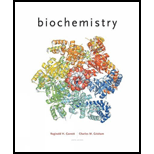
Biochemistry
6th Edition
ISBN: 9781305577206
Author: Reginald H. Garrett, Charles M. Grisham
Publisher: Cengage Learning
expand_more
expand_more
format_list_bulleted
Concept explainers
Question
Chapter 25, Problem 5P
Interpretation Introduction
To write:
About requirement of greater water intake for the high-protein diet.
Introduction:
Excessive amino acids don't seem to be kept within the human body; in reality, over-consumption causes organic compound degradation and ends up in the assembly of carbamide by the carbamide cycle.
Expert Solution & Answer
Trending nowThis is a popular solution!

Students have asked these similar questions
5) 4-Quinolone, compound A, is the core structure for many broad-spectrum antibacterial drugs.Compound A tautomerizes to make 4-hydroxyquinoline, compound B.
JOB UPDATE Apply on-
COMPANY
Vinkjobs.com
@
OR Search "VinkJobs.com" on Google
JOB PROFILE
JOB LOCATION
ACCENTURE
APPLICATION
DEVELOPMENT
MULTIPLE CITIES
HITACHI
FULL STACK DEV
BENGALURU
PAYU
BUSINESS ANALYST
MULTIPLE CITIES
MEESHO
DATA SCIENTIST
BENGALURU
ORACLE
SOFTWARE ENGINEER
BENGALURU
LUMEL
FRONT END DEVELOPER
CHENNAI
MPHASIS
INKLE
TECH SUPPORT
ENGINEER
BENGALURU
CUSTOMER SUPPORT
BENGALURU
MAKE MY TRIP KEY ACCOUNT MANAGER
AMAZON
DATA ASSOCIATE
DELHI NCR
BENGALURU
stripe.perplexity.ai/p +
← Return to Perplexity Al, Inc
perplexity
CURRENT SUBSCRIPTION
13
13
Perplexity Pro
$0.00 per month
View details
Your subscription ends on January 28, 2026.
Chapter 25 Solutions
Biochemistry
Ch. 25 - Prob. 1PCh. 25 - Prob. 2PCh. 25 - Regulation of Glutamine Synthetase by Covalent...Ch. 25 - The Energetic Cost of Nitrogen Excretion via the...Ch. 25 - Prob. 5PCh. 25 - Prob. 6PCh. 25 - Prob. 7PCh. 25 - Prob. 8PCh. 25 - Prob. 9PCh. 25 - Prob. 10P
Ch. 25 - Prob. 11PCh. 25 - Prob. 12PCh. 25 - Prob. 13PCh. 25 - Prob. 14PCh. 25 - Prob. 15PCh. 25 - A Deficiency on 3-Phosphogtycerate Dehydrogenase...Ch. 25 - Prob. 17PCh. 25 - Prob. 18PCh. 25 - Prob. 19PCh. 25 - Consider the synthesis and degradation of tyrosine...Ch. 25 - Prob. 21PCh. 25 - Prob. 22P
Knowledge Booster
Learn more about
Need a deep-dive on the concept behind this application? Look no further. Learn more about this topic, biochemistry and related others by exploring similar questions and additional content below.Similar questions
- You’ve isolated a protein and determined that the Native molecular weight of the holoenzyme is 160 kD using size exclusion chromatography. Analysis of this protein using SDS-PAGE revealed 2 bands, one at 100 kD and one at 30 kD. The enzyme was found to be 0.829% NAD (by weight). What further can be said regarding the structure of the polypeptide?arrow_forwardWhat is the formation of glycosylated hemoglobin (the basis for the HbA1c test)? Can you describe it?arrow_forwardPlease analze the gel electrophoresis column of the VRK1 kinase (MW: 39.71 kDa). Also use a ruler to measure the length of the column in centimeters and calculate the MW of each band observed. Lane 1: buffer Lane 2 : Ladder Lane 3: Lysate Lane 4: Flowthrough Lane 5: Wash Lanes 6-8: E1, E2, E3 Lane 9: Dialyzed VRK1 Lane 10: LDHarrow_forward
- Do sensory neurons express ACE2 or only neurolipin-1 receptors for COVID19 virus particle binding?arrow_forwardExplain the process of CNS infiltration of COVID19 through sensory neurons from beginning to end, including processes like endocytosis, the different receptors/proteins that are involved, how they are transported and released, etc.,arrow_forwardH2C CH2 HC-COOO CH2 ܘHO-C-13c-O isocitrate C-S-COA H213c CH2 C-OO 13C-S-COA CH2 C-00 the label will not be present in succinyl CoA C-S-COA succinyl-CoAarrow_forward
- A culture of kidneys cells contains all intermediates of the citric acid cycle. It is treated with an irreversible inhibitor of malate dehydrogenase, and then infused withglucose. Fill in the following list to account for the number of energy molecules that are formed from that one molecule of glucose in this situation. (NTP = nucleotidetriphosphate, e.g., ATP or GTP)Net number of NTP:Net number of NADH:Net number of FADH2:arrow_forward16. Which one of the compounds below is the final product of the reaction sequence shown here? OH A B NaOH Zn/Hg aldol condensation heat aq. HCI acetone C 0 D Earrow_forward2. Which one of the following alkenes undergoes the least exothermic hydrogenation upon treatment with H₂/Pd? A B C D Earrow_forward
- 6. What is the IUPAC name of the following compound? A) (Z)-3,5,6-trimethyl-3,5-heptadiene B) (E)-2,3,5-trimethyl-1,4-heptadiene C) (E)-5-ethyl-2,3-dimethyl-1,5-hexadiene D) (Z)-5-ethyl-2,3-dimethyl-1,5-hexadiene E) (Z)-2,3,5-trimethyl-1,4-heptadienearrow_forwardConsider the reaction shown. CH2OH Ex. CH2 -OH CH2- Dihydroxyacetone phosphate glyceraldehyde 3-phosphate The standard free-energy change (AG) for this reaction is 7.53 kJ mol-¹. Calculate the free-energy change (AG) for this reaction at 298 K when [dihydroxyacetone phosphate] = 0.100 M and [glyceraldehyde 3-phosphate] = 0.00300 M. AG= kJ mol-1arrow_forwardIf the pH of gastric juice is 1.6, what is the amount of energy (AG) required for the transport of hydrogen ions from a cell (internal pH of 7.4) into the stomach lumen? Assume that the membrane potential across this membrane is -70.0 mV and the temperature is 37 °C. AG= kJ mol-1arrow_forward
arrow_back_ios
SEE MORE QUESTIONS
arrow_forward_ios
Recommended textbooks for you
 BiochemistryBiochemistryISBN:9781305577206Author:Reginald H. Garrett, Charles M. GrishamPublisher:Cengage Learning
BiochemistryBiochemistryISBN:9781305577206Author:Reginald H. Garrett, Charles M. GrishamPublisher:Cengage Learning Human Physiology: From Cells to Systems (MindTap ...BiologyISBN:9781285866932Author:Lauralee SherwoodPublisher:Cengage Learning
Human Physiology: From Cells to Systems (MindTap ...BiologyISBN:9781285866932Author:Lauralee SherwoodPublisher:Cengage Learning Biology: The Dynamic Science (MindTap Course List)BiologyISBN:9781305389892Author:Peter J. Russell, Paul E. Hertz, Beverly McMillanPublisher:Cengage Learning
Biology: The Dynamic Science (MindTap Course List)BiologyISBN:9781305389892Author:Peter J. Russell, Paul E. Hertz, Beverly McMillanPublisher:Cengage Learning Nutrition Through The Life CycleHealth & NutritionISBN:9781337919333Author:Brown, Judith E.Publisher:Cengage Learning,Lifetime Physical Fitness & WellnessHealth & NutritionISBN:9781337677509Author:HOEGERPublisher:Cengage
Nutrition Through The Life CycleHealth & NutritionISBN:9781337919333Author:Brown, Judith E.Publisher:Cengage Learning,Lifetime Physical Fitness & WellnessHealth & NutritionISBN:9781337677509Author:HOEGERPublisher:Cengage Biology Today and Tomorrow without Physiology (Mi...BiologyISBN:9781305117396Author:Cecie Starr, Christine Evers, Lisa StarrPublisher:Cengage Learning
Biology Today and Tomorrow without Physiology (Mi...BiologyISBN:9781305117396Author:Cecie Starr, Christine Evers, Lisa StarrPublisher:Cengage Learning

Biochemistry
Biochemistry
ISBN:9781305577206
Author:Reginald H. Garrett, Charles M. Grisham
Publisher:Cengage Learning

Human Physiology: From Cells to Systems (MindTap ...
Biology
ISBN:9781285866932
Author:Lauralee Sherwood
Publisher:Cengage Learning

Biology: The Dynamic Science (MindTap Course List)
Biology
ISBN:9781305389892
Author:Peter J. Russell, Paul E. Hertz, Beverly McMillan
Publisher:Cengage Learning

Nutrition Through The Life Cycle
Health & Nutrition
ISBN:9781337919333
Author:Brown, Judith E.
Publisher:Cengage Learning,

Lifetime Physical Fitness & Wellness
Health & Nutrition
ISBN:9781337677509
Author:HOEGER
Publisher:Cengage

Biology Today and Tomorrow without Physiology (Mi...
Biology
ISBN:9781305117396
Author:Cecie Starr, Christine Evers, Lisa Starr
Publisher:Cengage Learning